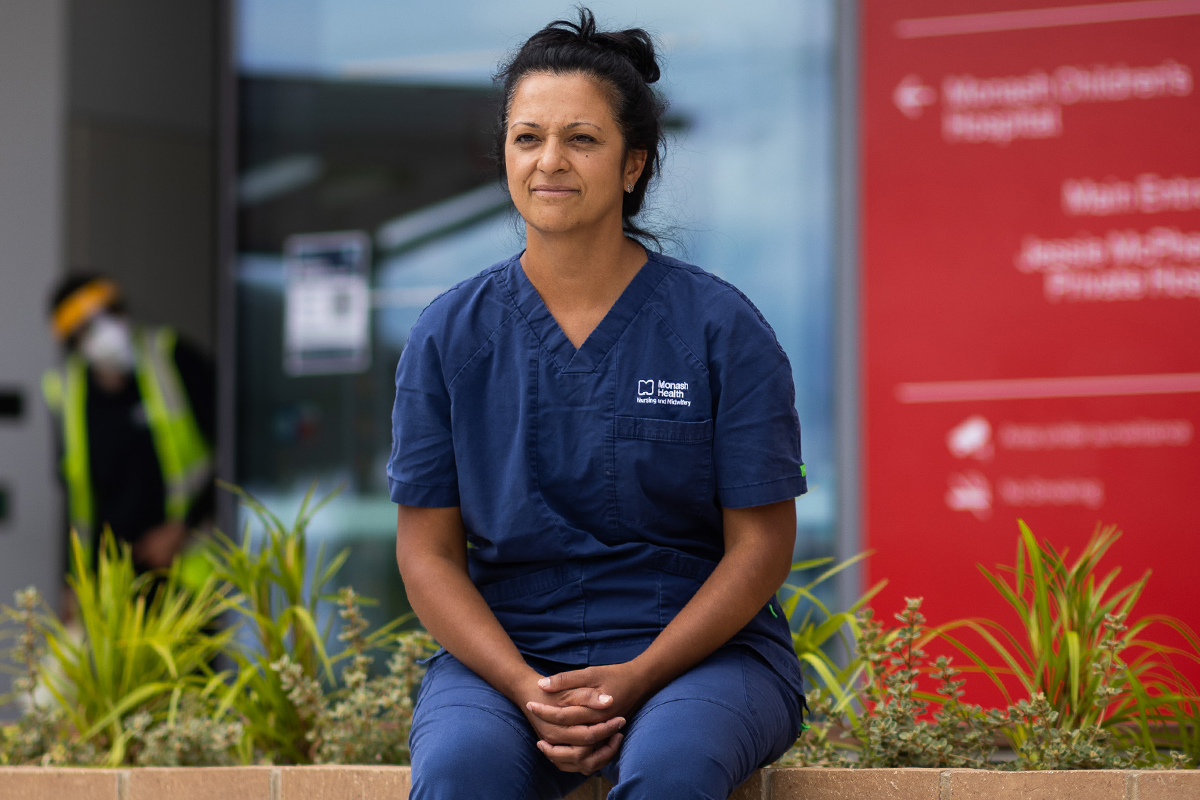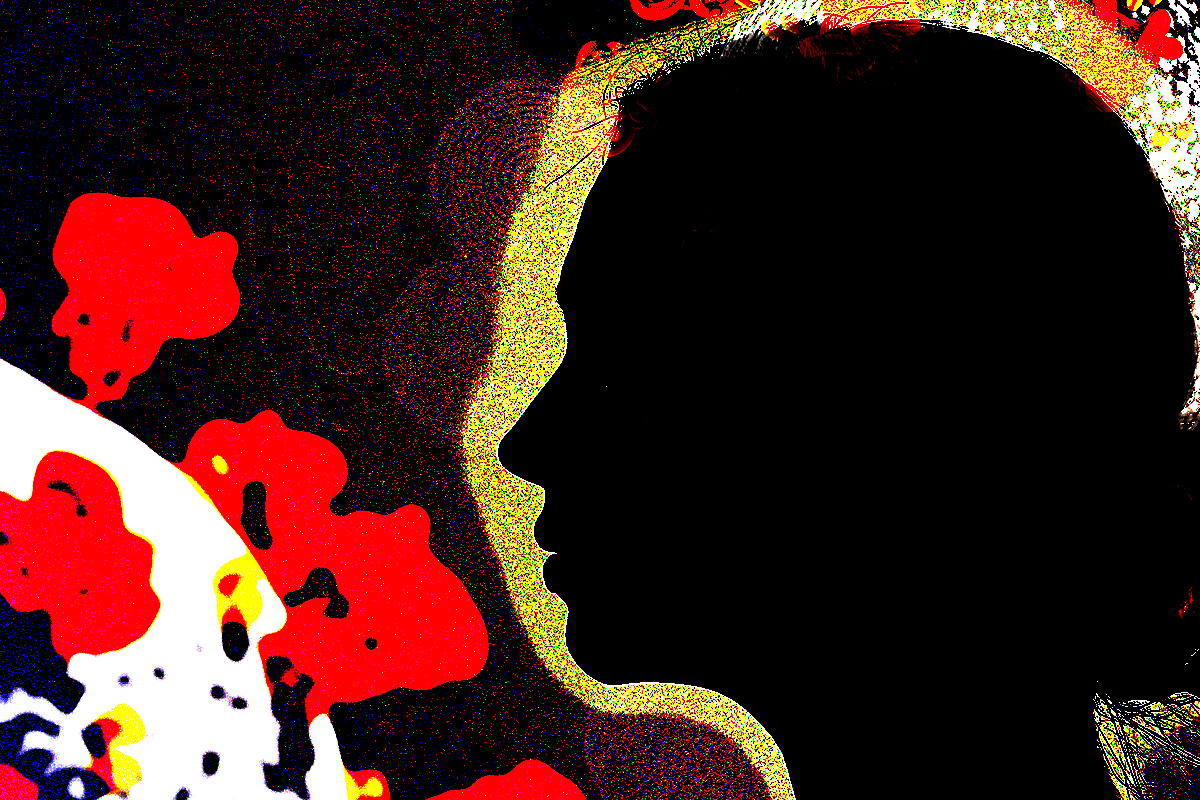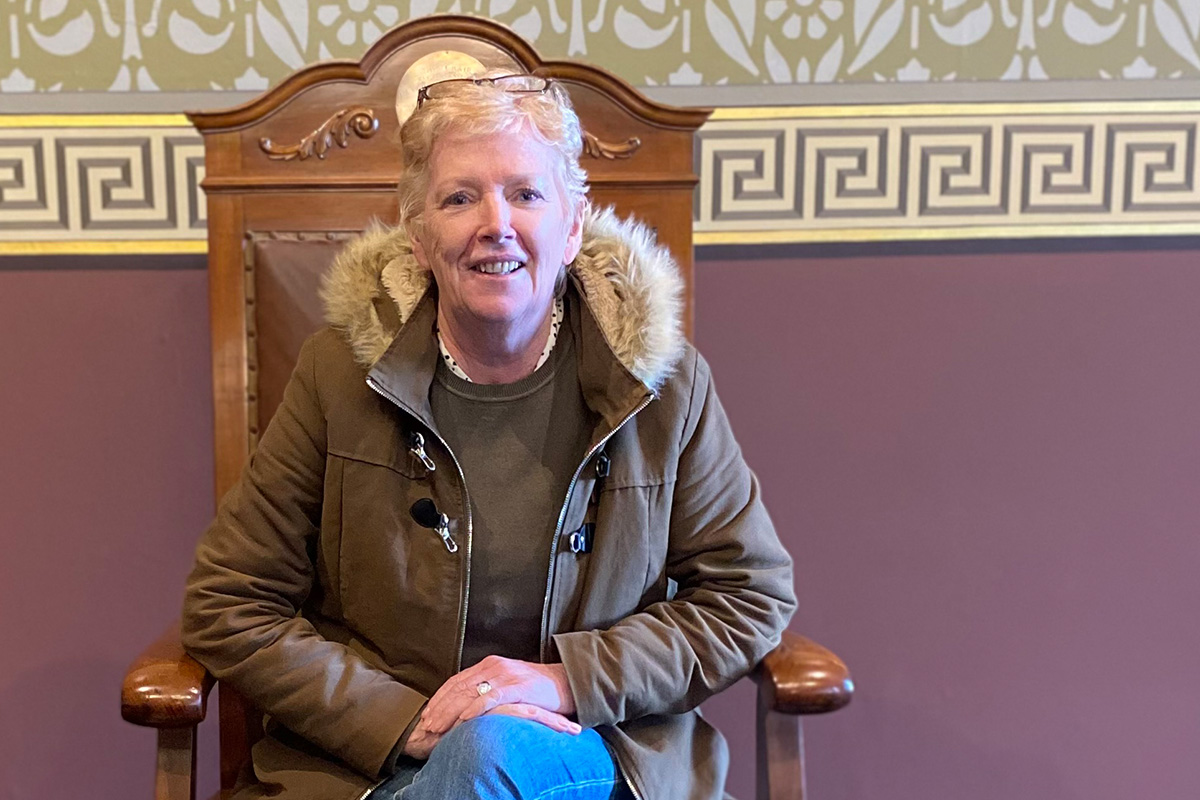
Jess Herrmann
Three years ago, in the depths of the COVID-19 pandemic, RN Jess Herrmann began a ‘journey’ that would change her life. It took around 18 months, but eventually she received an official diagnosis of, and medication for, ADHD. But when she started taking the meds, Jess found that masking techniques developed unconsciously over a lifetime were disrupted and it soon became apparent she was Autistic.
‘What often happens is that traits of one will mask the other,’ she says. ‘For me, my ADHD traits were masking my Autistic traits and it wasn’t until I started meds that my Autistic traits came out swinging.’
As she navigated the emotional rollercoaster of the diagnosis, swinging from grief to relief, she also began the process of ‘relearning’ her brain and setting up supportive plans at home and within her workplace. Happily, Jess’s workplace – Grampains Health – has been ‘absolutely fantastic’. This is in part due to the extensive self-advocacy Jess did, and she’s now advocating for neurodivergent nurses, midwives and carers across the state.
‘I feel like there’s a lot of pressure on the healthcare system to be neuro-accessible,’ she says, ‘but the sector isn’t even accessible to the people who work within it.’
Embracing strengths and struggles
Jess is doing a Master of Health through Federation University, with her research focused on the lived experience of ADHD and Autistic nurses, midwives and carers within the Victorian public sector. As part of that work, she’s aiming to formally identify anecdotal trends she’s noticed, such as a lot of ADHD and Autistic nurses working in emergency. She theorises that this is because in those high-intensity clinical situations, ADHD traits may help people feel calmer.
‘For a very long time, before I knew that I was ADHD and Autistic, I thought there was something wrong with me because I didn’t feel the stress that everyone else was feeling [in a resus situation],’ she explains.’ Once I got my diagnosis, I realised that my brain is calmer in that type of high-intensity situation. I hate using the word superpower,’ she adds, ‘but it’s such a benefit – not only for the patients, but for our colleagues to know that.’
Like many Autistics, Jess has a great memory. In fact, she’s earned the nickname ‘the encyclopedia’ because of her ability to memorise phone numbers, pathology results and other useful information. That her colleagues acknowledge her strengths this way has made her feel incredibly accepted. ‘There’s so many things that I can do that others may not be able to do.’
On the flip side, she accepts and acknowledges areas where she could use a little more guidance or help, such as talking to a family, and wherever possible will discuss that with her colleagues in advance – asking for feedback on her social scripts for instance.
Working with ANMF to improve resources and education
Better understanding of and accommodating for the strengths and weaknesses of nurses and midwives with ADHD and Autism – and other neurodivergent conditions, such as dyslexia – helps everyone in the workplace, Jess says. This is why she’s also working with the ANMF (Vic Branch) Education Centre to develop CPD resources and online modules aimed at improving nurses’, midwives’ and carers’ knowledge around neurodivergence in healthcare, as well as supporting neurodivergent nurses, midwives and carers.
‘I discovered that there weren’t really any resources or education in Australia that focus on ADHD and Autistic healthcare workers, let alone all the other neurodivergencies as well. I just thought maybe there’s something ANMF can do about this.’
The aim is not just to improve knowledge around neurodivergence among nurses, midwives and carers – for colleagues, for managers and employers, and for neurodivergent nurses, midwives and carers themselves, especially those with an adult diagnosis – but to normalise acceptance and accessibility in the workplace.
‘I’d love every ward and in every department of the health sector to have a fidget-toy box so that people can use them when needed,’ Jess says. ‘They are helpful for decompressing after really stressful shifts, for instance, and not just for neurodivergent people.’
This is key, Jess notes: a lot of the changes and resources we can put in place for neurodivergent nurses, midwives and carers will benefit the entire workforce – and beyond: ‘If we make our workplaces more neuro-accessible for our staff, it also means they’ll be more accessible for our patients, consumers and families. If our patient-facing websites had text-to-speech, for instance, they would so much more accessible, and not just for neurodivergent people but for people who are hard of hearing or who have low vision. The benefits will be felt by many different populations.’
Jess’s tips
For colleagues and managers:
- Don’t assume everyone can do something that’s simple to you.
- If someone tells you they are Autistic or have ADHD, ask them if there are things you can do to help them, and also be open to that the person may not know what supports they need as it may also be the first time in their life that they are being offered these supports.
- Ask specific, not open-ended, questions. For instance, if you have another colleague living with ADHD or Autism and they have a strategy that has helped, suggest it. Ask: ‘is it okay if I do X, Y or Z with you?’
- Understand that not everyone with ADHD and/or Autism will have an official diagnosis, as not everyone has that opportunity – either financially, or due to geographical, cultural or other barriers.
For nurses, midwives and carers who are neurodivergent:
- Be upfront when you meet new people: People are often afraid of offending you, so if you give them permission to respectfully let you know if you’re unintentionally coming across as rude, it usually results in a more positive interaction.
- You are not alone. If you feel comfortable doing so, reach out to a trusted colleague or friend, or chat to your GP. You can also speak with Nursing and Midwifery Health Program Victoria (NMHPV), a free, confidential and independent support service provided for nurses and midwives by nurses and midwives. And keep an eye out for further updates from ANMF on Jess’s work.
- Visit Amaze




